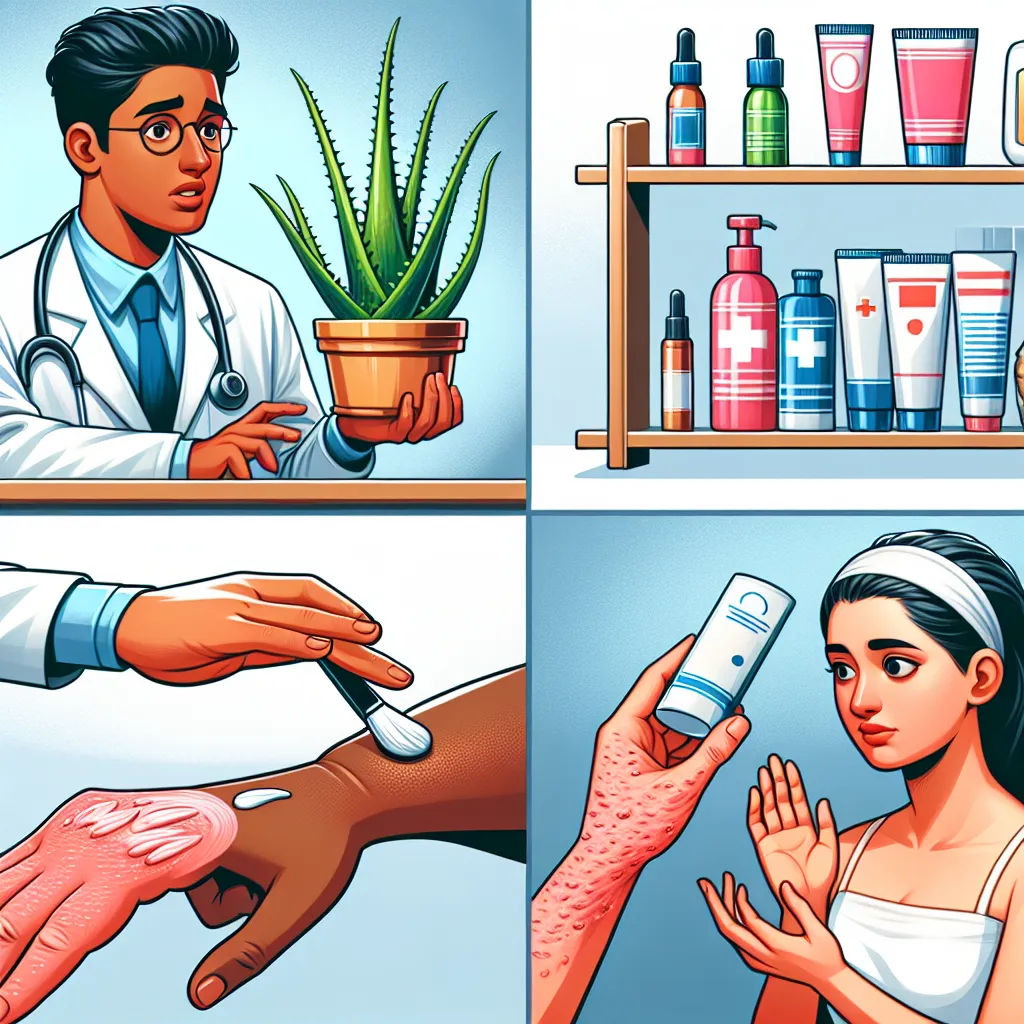Exploring the Best Eczema Treatments
Exploring the Best Eczema Treatments
Eczema, also known as atopic dermatitis, is a chronic skin condition that affects millions of people worldwide. It is characterized by dry, itchy, and inflamed patches of skin that can be quite uncomfortable and unsightly. While there is no cure for eczema, there are several treatments available that can help manage the symptoms and provide relief. In this article, we will explore some of the best eczema treatments that can help you find relief and improve your quality of life.
1. Moisturizers
One of the most important steps in managing eczema is keeping your skin well-moisturized. Moisturizers help to replenish and retain moisture in the skin, reducing dryness and preventing flare-ups. Look for moisturizers that are fragrance-free, hypoallergenic, and specifically formulated for sensitive skin. Apply moisturizer immediately after bathing or showering to lock in moisture.
2. Topical Steroids
Topical steroids are commonly prescribed by dermatologists to reduce inflammation and itching associated with eczema. These medications come in different strengths, and your doctor will determine the appropriate strength based on the severity of your condition. It is important to follow your doctor’s instructions and use topical steroids as directed, as long-term use or misuse can lead to side effects.

3. Antihistamines
Antihistamines are often recommended to eczema patients to help relieve itching and promote better sleep. They work by blocking the effects of histamine, a chemical released during an allergic reaction that causes itching. Non-drowsy antihistamines are available over-the-counter, while stronger ones may require a prescription from your doctor.
4. Topical Calcineurin Inhibitors
Topical calcineurin inhibitors, such as tacrolimus and pimecrolimus, are non-steroidal creams or ointments that help reduce inflammation and itching. They are particularly useful for treating eczema in sensitive areas, such as the face, neck, and groin. These medications are generally safe and effective when used as directed, but they may increase the risk of skin infections, so it’s important to discuss with your doctor.
5. Wet Wrap Therapy
Wet wrap therapy involves applying a moisturizer or medicated cream to the affected areas and then covering them with damp clothing or bandages. This helps to lock in moisture and enhance the absorption of the medication. Wet wrap therapy can be particularly beneficial for severe eczema flare-ups and can provide quick relief. However, it is best to consult with a healthcare professional before attempting this treatment method.
6. Phototherapy
Phototherapy, also known as light therapy, involves exposing the affected skin to controlled amounts of natural or artificial ultraviolet light. This treatment helps to reduce inflammation and itching associated with eczema. Phototherapy is usually conducted under medical supervision and may require multiple sessions to achieve optimal results.
7. Prescription Medications
In cases where other treatments have not provided sufficient relief, your doctor may prescribe stronger medications such as oral corticosteroids or immunosuppressants. These medications are typically reserved for severe cases of eczema and are closely monitored due to potential side effects. It is crucial to follow your doctor’s instructions and attend regular check-ups while on these medications.
8. Lifestyle Changes
Along with medical treatments, making certain lifestyle changes can also help manage eczema symptoms. Avoiding triggers such as harsh soaps, detergents, and certain fabrics can prevent flare-ups. Additionally, maintaining a healthy lifestyle, including regular exercise, stress management, and a balanced diet, can improve overall skin health.
9. Natural Remedies
While scientific evidence for natural remedies in treating eczema is limited, some individuals find relief from certain natural products. These may include coconut oil, oatmeal baths, aloe vera gel, or witch hazel. It is important to note that natural remedies may not work for everyone, and it’s advisable to consult with a healthcare professional before trying any alternative treatments.
10. Emotional Support
Living with eczema can take a toll on one’s emotional well-being. It is essential to seek emotional support from friends, family, or support groups to cope with the challenges of managing eczema. Sharing experiences, tips, and advice with others who are going through similar experiences can provide comfort and encouragement.
Conclusion
While eczema can be a frustrating and uncomfortable condition, there are several treatment options available to help manage its symptoms. The best approach is often a combination of medical treatments, lifestyle changes, and emotional support. If you are experiencing eczema symptoms, it is important to consult with a dermatologist or healthcare professional to determine the most suitable treatment plan for your specific needs. By finding the right combination of treatments, you can improve your quality of life and keep your eczema symptoms under control.
